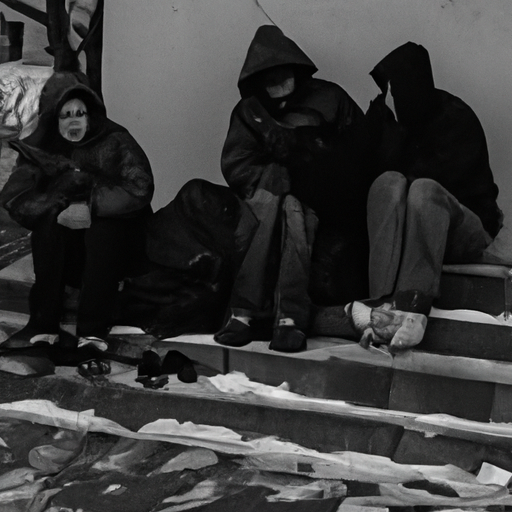The Canadian Opioid Crisis Intensifies Amid Pandemic Uncertainties
As the globe grapples with the significant health, social, and economic impacts of the COVID-19 pandemic, Canada faces an additional, longstanding public health crisis that has been magnified in the shadow of the virus – the opioid crisis.
The Rising Opioid-Related Death Rates
According to the article, the province of Ontario has witnessed a significant spike in opioid-related deaths among homeless individuals this year, correlating with the overall rising trend in the country. This dramatic increase raises urgent questions about access to healthcare, especially in vulnerable populations.
The destructiveness of the opioid crisis is seen in its association with increased crime rates, extreme mental health issues, and an escalation in homelessness, fueling a cycle of despair and societal breakdown. It is therefore critical for government entities, health stakeholders, and community leaders to unite their efforts and resources in combatting this life-threatening issue with comprehensive, reality-based solutions.
Action Against the Opioid Crisis
In the wake of the intensifying opioid crisis, several initiatives and recommendations have been proposed and implemented to help mitigate its effects:
- Naloxone: This life-saving medication, known for its effectiveness in reversing the effects of opioid overdose, is being made more widely available in communities across the country.
- Opioid class-action suits: Various jurisdictions are holding opioid manufacturers accountable through class-action lawsuits, aiming to recoup some of the societal costs attributed to the opioid crisis.
- Safer supply programs: These initiatives aim to provide opioid users with safer, prescribed alternatives to street drugs that are often laced with lethal substances like fentanyl.
- Housing-first approach: Recognizing that stable housing is a significant aspect of addiction recovery, many municipalities are embracing a housing-first approach, with supportive services, in their efforts to combat homelessness and substance use issues.
Lessening the Burden on Strained Healthcare Services
As seen in the news, hospitals across Canada are under exceptional pressure due to the pandemic, and situations such as the boiler failure in a Toronto Hospital further exemplify the challenges faced by these crucial healthcare institutions. While such incidents pose significant setbacks, it is encouraging to see communities demonstrating resilience and solidarity in such trying times.
Conclusion
In the face of the concurrent crises of the pandemic and the opioid crisis, it is paramount that we continue to address these issues head-on, using research, data, empathy, and a multi-faceted approach to form policies and interventions. Effective responses to the opioid crisis will undoubtedly necessitate combined efforts from governing bodies, healthcare professionals, community organizations, and citizens alike.
This terrible opioid crisis, which has led to increased crime rates, homelessness, and pressure on healthcare institutions, is a urgent public health issue that demands our collective attention and swift action. As we navigate this unprecedented time in history, it is critical that we also turn our focus to the human costs of the opioid crisis, working together to devise and implement measures that can help save lives and rebuild affected communities.
Remember, the fight against opioids is much more than a battle against drugs. It is a pursuit of healthier, safer, more resilient communities, and we must all play our part in achieving this aspiration.
